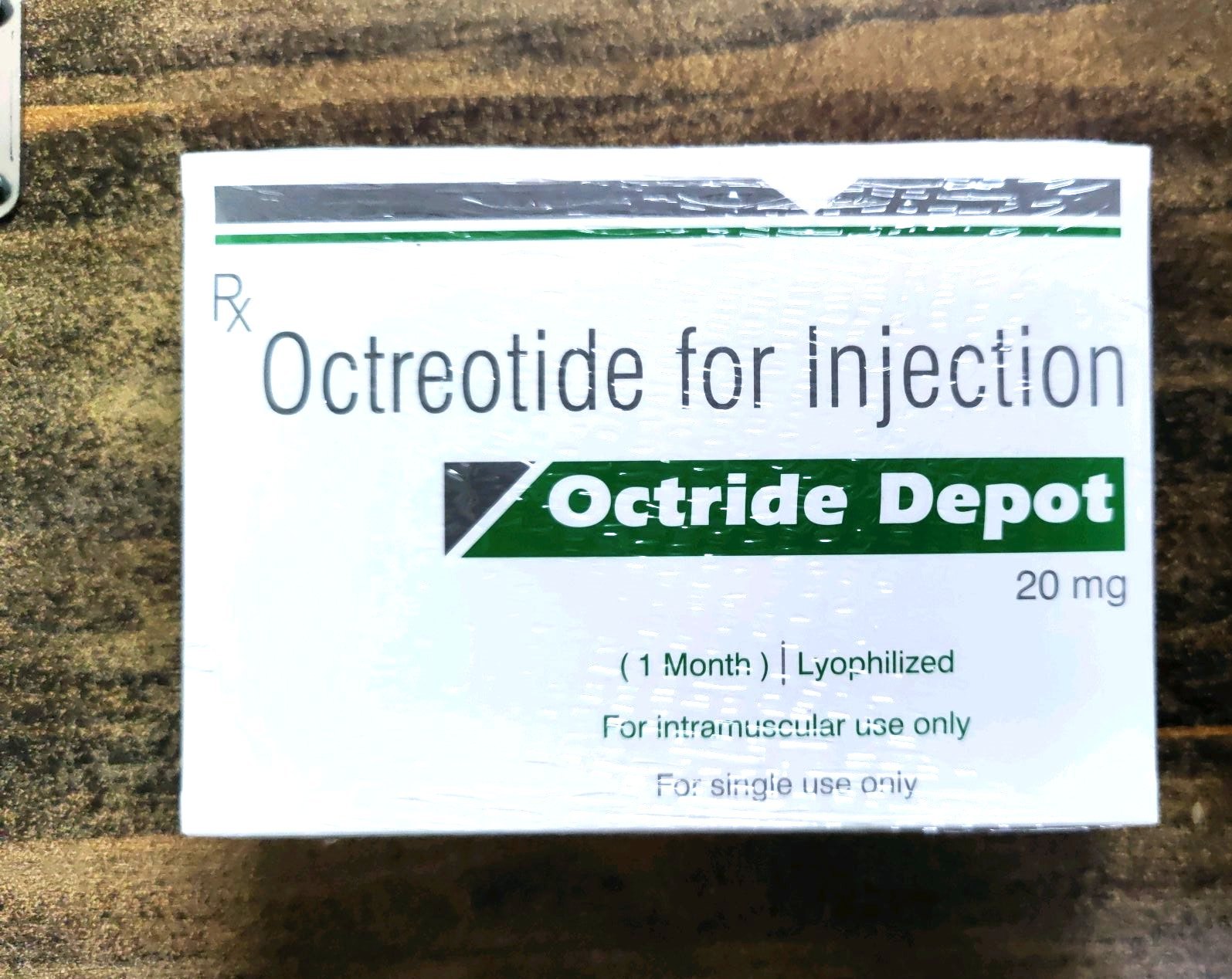Octride DEPOT 20 is a prescription medication used to treat various conditions, including:
- Acromegaly (a condition characterized by excessive growth hormone production)
- Carcinoid syndrome (a condition characterized by the release of excess hormones from certain tumors)
- Neuroendocrine tumors (tumors that arise from the endocrine system)
- Diabetic gastroparesis (a condition characterized by delayed stomach emptying)
Composition:
- Octride DEPOT 20: Octreotide 20mg Injection
Mechanism of Action:
Octreotide, the active ingredient in Octride DEPOT, works by:
- Binding to somatostatin receptors on the surface of tumor cells, which reduces the production of excess hormones.
- Inhibiting the release of hormones from tumor cells, which reduces the symptoms of acromegaly and carcinoid syndrome.
- Reducing the growth of tumors in patients with neuroendocrine tumors.
Indications:
Octride DEPOT is approved for the treatment of:
- Acromegaly in patients who have not responded to surgery or other treatments.
- Carcinoid syndrome in patients who have not responded to other treatments.
- Neuroendocrine tumors in patients who have not responded to other treatments.
- Diabetic gastroparesis in patients who have not responded to other treatments.
Dosage:
The recommended dosage of Octride DEPOT is:
- 20mg every 4 weeks, administered by a healthcare professional.
- The recommended duration of treatment is until disease progression or unacceptable toxicity.
Side Effects:
Common side effects of Octride DEPOT include:
- Diarrhea
- Abdominal pain
- Nausea
- Vomiting
- Headache
- Fatigue
- Depression
- Increased risk of gallstones
- Increased risk of hypoglycemia
Recommendation:
Octride DEPOT is recommended for patients with acromegaly, carcinoid syndrome, neuroendocrine tumors, or diabetic gastroparesis who have not responded to other treatments.
Important Note:
- Patients taking Octride DEPOT should be closely monitored for signs of liver damage or kidney damage.
- Patients taking Octride DEPOT should avoid taking medications that may interact with it, such as anticoagulants or medications that can increase the risk of bleeding.
- Pregnant or breastfeeding women should not use Octride DEPOT, as it may harm the fetus or infant.
- Regular follow-up appointments with your healthcare provider are necessary to monitor the effectiveness of Octride DEPOT and to detect any potential side effects or complications.
Special Precautions:
- Patients with a history of liver disease or kidney disease should be closely monitored while taking Octride DEPOT.
- Patients taking Octride DEPOT should avoid taking medications that may increase the risk of liver damage or kidney damage.
- Patients with a history of gallstones or pancreatitis should be closely monitored while taking Octride DEPOT.
Contraindications:
- Patients with severe liver disease or severe kidney disease should not use Octride DEPOT.
- Patients who are pregnant or breastfeeding should not use Octride DEPOT.
- Patients who are allergic to octreotide or any other component of Octride DEPOT should not use it.




Reviews
There are no reviews yet.